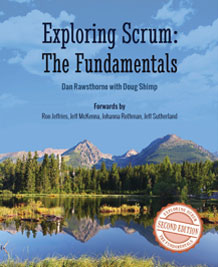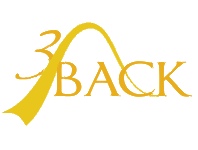Scrum Training Chicago – Certified Scrum Master & Product Owner Training
Register for Scrum Training in Chicago
[course_list view=table market=chicago-il show_price show_image]
FREE Scrum Study Guide with your CSM enrollment!!
Why Attend 3Back’s Scrum Training Chicago?
- Learn by Doing! Get a hands-on understanding of the Scrum framework. Build a real product during class and apply the knowledge as you learn it.
- Train with the Best! Your Chicago Scrum training will be taught by a senior leader in the agile industry and author of Exploring Scrum: The Fundamentals.
- Get Certified! Earn your credentials from the Scrum Alliance – the first and most widely recognized international Scrum certification organization.
- Stay Sharp! Don’t fear the Chicago job market. Learn increasingly popular skills that employers are looking for. Increase your marketability.
- Get Free Stuff! As a 3Back public course participant, you’ll receive free lifetime access* to the Scrum planning and implementation tool Get To Done® (a value of $60 per year). Get a FREE Scrum Study Guide with your CSM training to make passing the exam a breeze. Also included are lunch, beverages, and snacks throughout class.
*Access expires if account remains inactive for 12 consecutive months.

Work in teams, using Scrum techniques and defined roles, to develop a real product

Practice the entire scrum development process in class.

Implement Scrum in class with a real team and a real product so you can implement Scrum properly for your team.
What You Get with Your Scrum Training in Chicago:
for Get To Done:
- Free 6-month access for as many team members as you like (a $72 value per license)!
- Sample cards from the physical Get To Done board kit.
- The most intuitive easy-to-use Scrum tool on the market is now your playground!
for the Scrum Alliance:
- Eligibility to take the online exam (CSM course only) – your final step to becoming a Certified ScrumMaster!
- Certified Scrum Product Owner (CSPO) designation (CSPO course only) – no exam required!
- Two year membership to the Scrum Alliance included with each course (a $50 value).
for PMI:
- 14 PDUs upon completion of either the CSM (ScrumMaster training) or CSPO (Product Owner training).
- 14 of the 21 training contact hours required to take your PMI-ACP exam.
for the Classroom:
- Free Scrum Study Guide (a $49.95 value) with your CSM course to better prepare for the Scrum Alliance exam.
- Course kit, including workbook & reference guide, sprint planning cards and job aids.
- Light breakfast, delicious lunch, refreshments and unlimited coffee throughout each day of class.
- One of the most fun, valuable and memorable learning experiences you’ll ever have!
Who Should Attend Chicago Certified Scrum Training?
There is no right or wrong person to attend Scrum training in Chicago. In fact, the most successful agile adoptions have included training for everyone, right down to Finance and Sales staff.
Whether considering ScrumMaster training or Product Owner training, Scrum training in general is highly appropriate for anyone in the corporate structure dealing with rapidly changing demands. In a traditional organization, these roles might include:
 But Which Training in Chicago Should I Attend?
But Which Training in Chicago Should I Attend?
Both courses provide a solid foundation of knowledge on which to build your Scrum adoption. However, if you’re hoping for more specialization, a simple way to consider the course differences is this:
- The Certified ScrumMaster training (CSM) is geared toward those responsible for creating a project, such as team members and ScrumMasters.
- The Certified Product Owner training (CSPO) is focused on those who carry the product vision, such as Product Owners, management and stakeholders.
The 3Back Difference:

- Accredited Training – 3Back is a Registered Education Provider (REP) for both the Scrum Alliance and the Project Management Institute (PMI).
- Expert Trainers – All 3Back certified trainings are delivered by Scrum Alliance Certified Scrum Trainers – industry leaders and authors of Exploring Scrum: The Fundamentals.
- 99% Pass Rate – 3Back students have over a 99% pass rate on their first attempt at the Scrum Alliance Certified ScrumMaster exam.
- Better Value – 3Back training utilizes modern adult learning practices proven to enhance retention and understanding. Why waste money on information that will be forgotten?
- Applied Agile – Nothing accelerates learning like a solid foundation of “why” followed by intensive hands-on experience. This teaches students how to make well-informed decisions based on Scrum and agile methods, not just reiterate principles they’ve heard.
- Exceptional Customer Service – 3Back is more than just a company. We are a belief system and a way of life. We understand that our clients’ success is our success and we strive to show it in everything we do!
Optional Reading for Your Scrum Training Chicago:
 Exploring Scrum: The Fundamentals (People, Product, and Practices)
Exploring Scrum: The Fundamentals (People, Product, and Practices)
by Dan Rawsthorne and Doug Shimp
Dan Rawsthorne and Doug Shimp have trained and coached thousands of people, most of whom are already using Scrum. Their most common complaint is that they need help to do it right. And many (if not most) of them need some help.
This book is for them and others like them.
This book is not an introductory text. Dan and Doug assume that those who read this book know, or think they know, something about Scrum, whether through self-learning or by attending a ScrumMaster training class. This book takes a deep exploratory look into the Scrum framework and offers advice about how to think about it and how to use it. Some of this advice is philosophical, some is pragmatic, some is practical, and some of it is controversial.
See you at Scrum Training in Chicago!
– the 3Back Team






